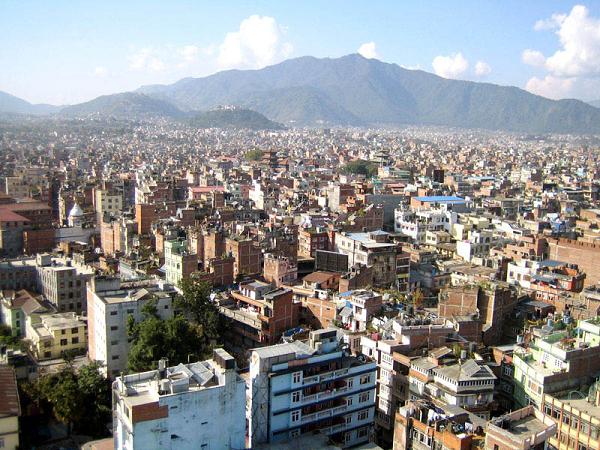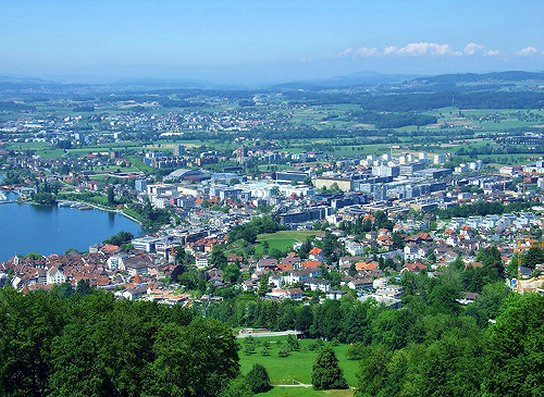guest |
October 3rd, 2012
Black History Month (BHM) is held every October in Britain and every February in USA and Canada.

Nelson Mandela
Its aims are to:
- Promote knowledge of Black History and Cultural Heritage
- Disseminate information on positive Black contributions to British Society
- Heighten the confidence and awareness of Black people to their cultural heritage.
 The origins of BHM go as far back as the 1920s, when Carter G Woodson, editor of the Journal of Negro History established Afro-Caribbean celebrations in America. Black History Month is for all of the African Diaspora. In Britain now, BHM has over 6,000 events!
The origins of BHM go as far back as the 1920s, when Carter G Woodson, editor of the Journal of Negro History established Afro-Caribbean celebrations in America. Black History Month is for all of the African Diaspora. In Britain now, BHM has over 6,000 events!
There are many events about Black history and culture, including theatre performances, concerts, art exhibits, and film screenings. Entertainment highlights for Black History Month this year are FELA!, a musical of Africa’s most legendary figures; Home Grown, an exhibition on the evolution of British hip hop culture; and Picture This, a photo exhibition of 30 inspirational portraits of black Britons by John Ferguson.
Read more.. »
guest |
October 2nd, 2012
Today is both the International Day of Nonviolence and the birthday of the Indian freedom fighter Mahatma Gandhi.

Mahatma Gandhi was a supporter of nonviolence
Gandhi’s birthday was chosen to mark the International Day of Nonviolence because his role as a promoter of freedom and civil rights movements around the world has been enormous. The day was established by the United Nations in 2007.
Gandhi was one of the first to distinguish between pacifism and nonviolence. Both pacifism and nonviolence oppose war and violence, but nonviolence accepts and embraces the necessity of struggle in achieving social change. Unlike some cases of pacifism, nonviolence never ignores conflict. Nonviolence has many activist elements, whereas pacifism is usually an personal, individual viewpoint and not necessarily connected to politics.
Since Gandhi’s times, nonviolence has developed into a widely accepted political philosophy. The three main categories of nonviolent action are:
1) Protest and persuasion, i.e. street marches
2) Non-cooperation
3) Nonviolent interventions such as blockades and occupations
Unfortunately, most world powers still see violence as the superior technique for resolving conflicts. Scholar Theodore Roszak once said, “People try nonviolence for a week, and when it ‘doesn’t work’ they go back to violence, which hasn’t worked for centuries.”
guest |
October 1st, 2012
Today is the first day of the seven-day Jewish Festival, Sukkot.

A Sukkah in North Carolina
Sukkot takes place on the fifth day of Yom Kippur, and is
known to be one of the most joyous and ecstatic festivals in the Jewish calendar. The transition to Sukkot always seems very drastic because Sukkot is preceded by one of the most quiet, solemn days in the Jewish calendar.
Sukkot has a dual significance: historical and agricultural. Historically, the festival commemorates the 40-year period that the people of Israel wandered in the desert. To reflect upon this 40-year journey it is common for Jewish families to build a Sukkah, a form of temporary shelter.
Read more.. »
guest |
October 1st, 2012
In 2008, for the first time in history, more than half of the world’s population was living in cities.

Today more than 50% of the world's inhabitants live in cities.
Today is World Habitat Day, and this year’s theme is Changing Cities, Building Opportunities.
World Habitat Day was first observed in 1986. The purpose of this day is to highlight the role of shelter as a basic human right, and reflect on the state of our cities and towns around the world. This year’s urban theme was chosen because cities are engines of growth, and across the globe more and more people are moving into cities in the hope of a better future. According to research done by the Massachusetts Institute of Technology cities make up only 2% of the world’s surface, but they house more than 50% of the world’s population, consume 70% of the world’s energy, and are responsible for the 80% of the world’s carbon footprint. Research from Yale predicts that by 2030 10% of the world’s surface could be urban, most of this expansion happening in Asia…
Read more.. »
guest |
October 1st, 2012
Children’s book week has been happening the first full week of every October for the past 80 years.

The Twits by Roald Dahl
It is an annual celebration of reading for pleasure for children. This year’s theme for Children’s Book Week is Heroes and Heroines.
Here are a few favourite quotes from famous children’s authors to celebrate Children’s Book Week:
Read more.. »
guest |
September 27th, 2012
This year’s theme for  World Maritime Day is One Hundred Years After the Titanic. In 1912, when the Titanic sank, more than 1500 people lost their lives. Two year’s later, in 1914, the first International Convention for the Safety of Life at Sea was adopted.
World Maritime Day is One Hundred Years After the Titanic. In 1912, when the Titanic sank, more than 1500 people lost their lives. Two year’s later, in 1914, the first International Convention for the Safety of Life at Sea was adopted.
This year’s theme will provide an opportunity to take stock of the developments in maritime safety since that disaster and to examine which areas of ship safety should be given priority in the years to come.
UN Secretary General Ban Ki Moon says, “A century after the Titanic was lost in the icy waters of the North Atlantic, the IMO is striving to ensure continual improvement in safety at sea. Its work is as important now as ever.”
Read more.. »
guest |
September 27th, 2012
27th of September was established as World Tourism Day by the UN World Tourism Association (UNWTO) 1980. The aim of the day is to raise awareness of the importance of tourism for the international community and its positive effects, socially and economically, on societies worldwide.
as World Tourism Day by the UN World Tourism Association (UNWTO) 1980. The aim of the day is to raise awareness of the importance of tourism for the international community and its positive effects, socially and economically, on societies worldwide.
The theme for 2012 is Tourism and Sustainable Technology: Powering Sustainable Development. Official celebrations will take place in Maspalomas, Spain. Watch live footage of the celebrations here!
Read more.. »
guest |
September 12th, 2012
Global Competitiveness Report is an annual report published by the World Economic Forum that assesses the competitiveness landscape of 144 major and emerging world economies.

Switzerland tops the overall ranking fourth year in a row.
The report was first published in 1979. Today it is the most comprehensive method of assessing national competitiveness worldwide.
Xavier Sala-i-Martin, Professor of Economics, Columbia University, says that the Global Competitiveness Report provides a window for long-term trends, and allows countries to see the key areas where they must act if they want to better the productivity that will “determine their economic future.”
The report measures a set of institutions, policies, and factors that set the current and medium-term levels of economic prosperity in each country. The World Economic Forum brings these measures together and analyses each country’s ability to provide levels of prosperity to its citizens. Levels of prosperity also depend on how effectively a country uses its available resources.
Read more.. »
guest |
August 30th, 2012
Today is the International Day of the Disappeared, a day to remember those who have been imprisoned without their friends and families knowing where or why.
In 2008, approximately two people were announced as ‘disappeared ‘every day.
The day originates from the efforts of the Latin American Federation of Associations for Relatives of Detained-Disappeared, a Costa-Rican NGO founded in 1981 that officially started the fight against secret imprisonment and forced disappearances. Today, larger organizations such as Amnesty International and the International Committee of the Red Cross are also doing valuable work in this field. International Day of the Disappeared is not only a day to mourn those missing, but also to highlight the work of these NGOs, raise awareness, and to raise funds for future ventures and campaigns against secret imprisonment.
Read more.. »
guest |
August 29th, 2012
Today is the International Day Against Nuclear Testing, a day that aims to end nuclear testing around the world and promote peace and security.

The UN hopes for a nuclear-weapon-free world.
Since the first nuclear test in 1945, the world has seen over 2000 different nuclear weapons tests. Although history has shown us how devastating the impact of nuclear weapons is many world leaders still hold the belief that possessing nuclear weapons is a sign of a country’s scientific sophistication and military might. This type of ideology gives little appreciation for human life or our atmosphere and environment.
In December 2009, the UN General Assembly unanimously adopted a new resolution with a goal of a nuclear-weapon-free world. UN secretary general Ban Ki-moon also stated that, “A world free of nuclear weapons would be a global public good of the highest order.”
August 29th was chosen as the date for International Day Against Nuclear Testing because it marks the day in 1991 when the world’s largest nuclear test site was closed in Kazakhstan.
Read more.. »

 The origins of BHM go as far back as the 1920s, when Carter G Woodson, editor of the Journal of Negro History established Afro-Caribbean celebrations in America. Black History Month is for all of the African Diaspora. In Britain now, BHM has over 6,000 events!
The origins of BHM go as far back as the 1920s, when Carter G Woodson, editor of the Journal of Negro History established Afro-Caribbean celebrations in America. Black History Month is for all of the African Diaspora. In Britain now, BHM has over 6,000 events!





 World Maritime Day is One Hundred Years After the Titanic. In 1912, when the Titanic sank, more than 1500 people lost their lives. Two year’s later, in 1914, the first International Convention for the Safety of Life at Sea was adopted.
World Maritime Day is One Hundred Years After the Titanic. In 1912, when the Titanic sank, more than 1500 people lost their lives. Two year’s later, in 1914, the first International Convention for the Safety of Life at Sea was adopted. as World Tourism Day by the UN World Tourism Association (UNWTO) 1980. The aim of the day is to raise awareness of the importance of tourism for the international community and its positive effects, socially and economically, on societies worldwide.
as World Tourism Day by the UN World Tourism Association (UNWTO) 1980. The aim of the day is to raise awareness of the importance of tourism for the international community and its positive effects, socially and economically, on societies worldwide.

 Hello, I'm Deborah Swallow and, for the last fifteen years, I've worked in over thirty countries addressing the complexities of people working internationally across multiple cultures, so individuals and organisations alike can gain an authentic competitive edge and win in international markets.
Hello, I'm Deborah Swallow and, for the last fifteen years, I've worked in over thirty countries addressing the complexities of people working internationally across multiple cultures, so individuals and organisations alike can gain an authentic competitive edge and win in international markets. 